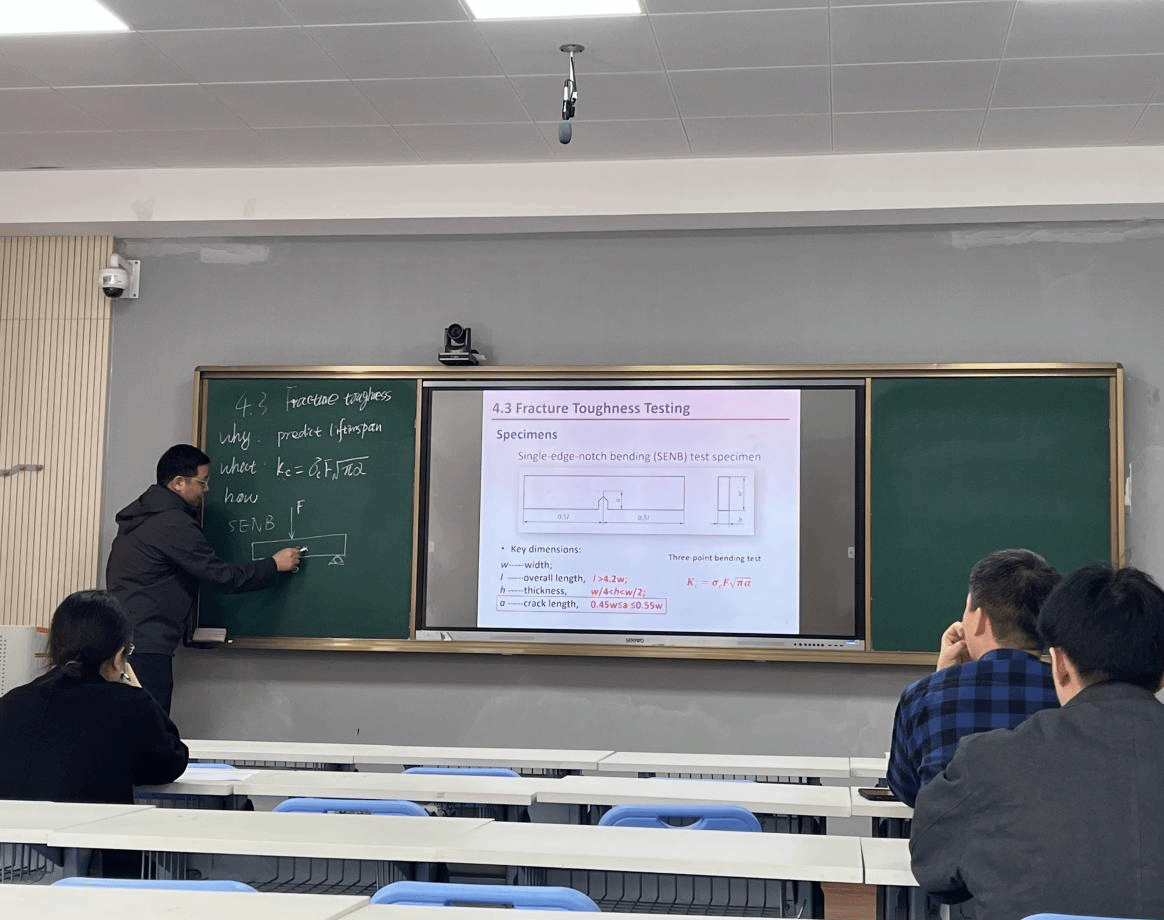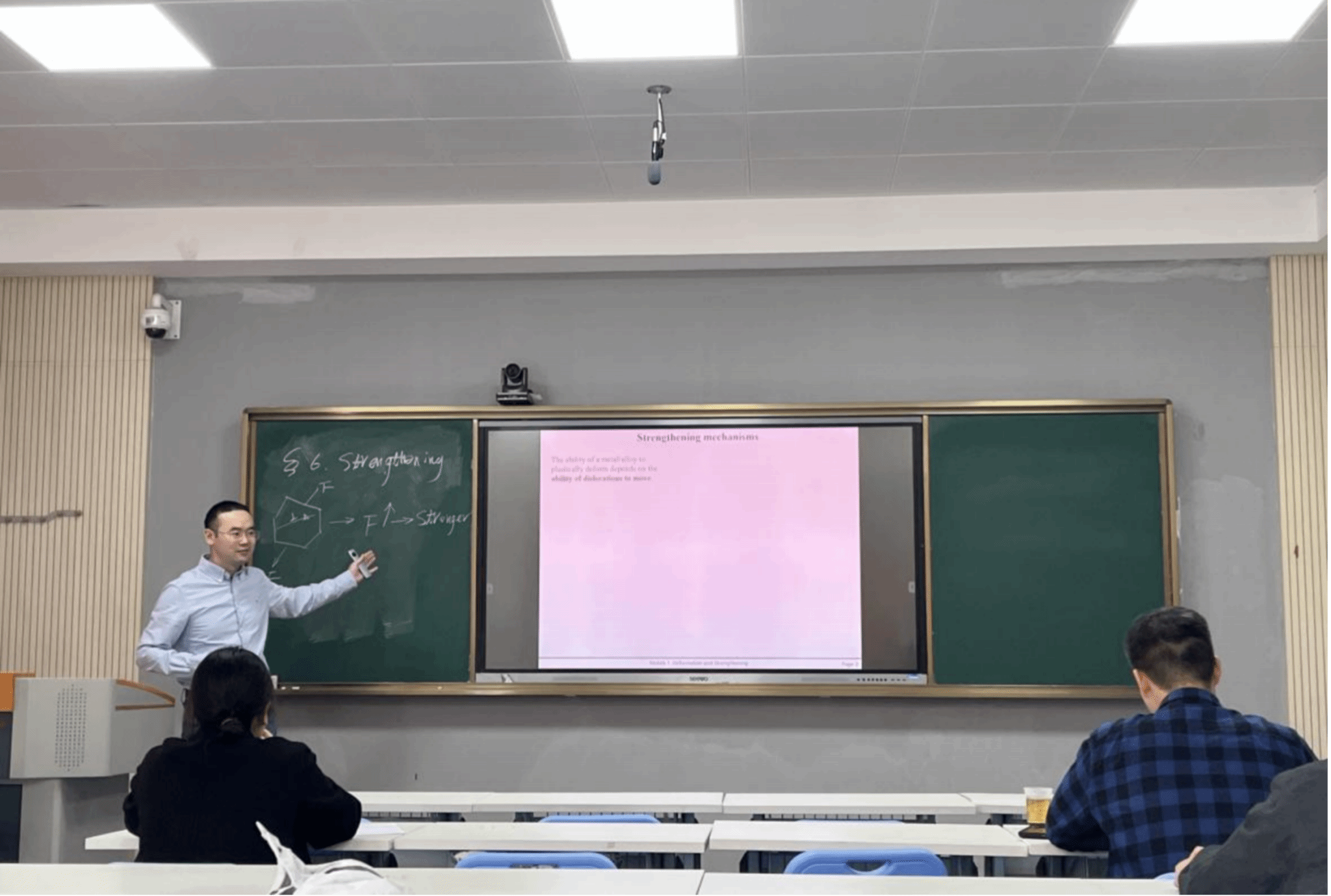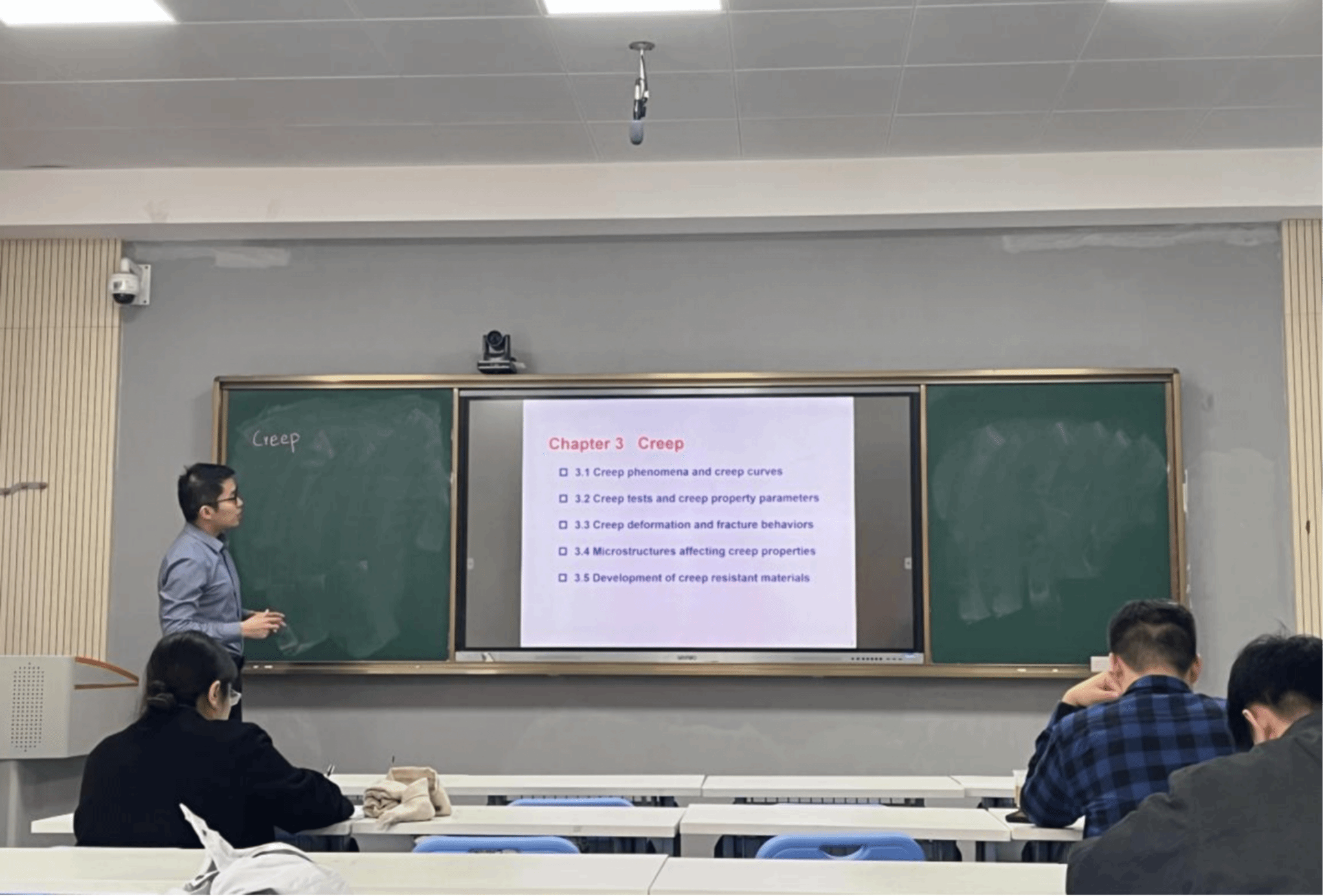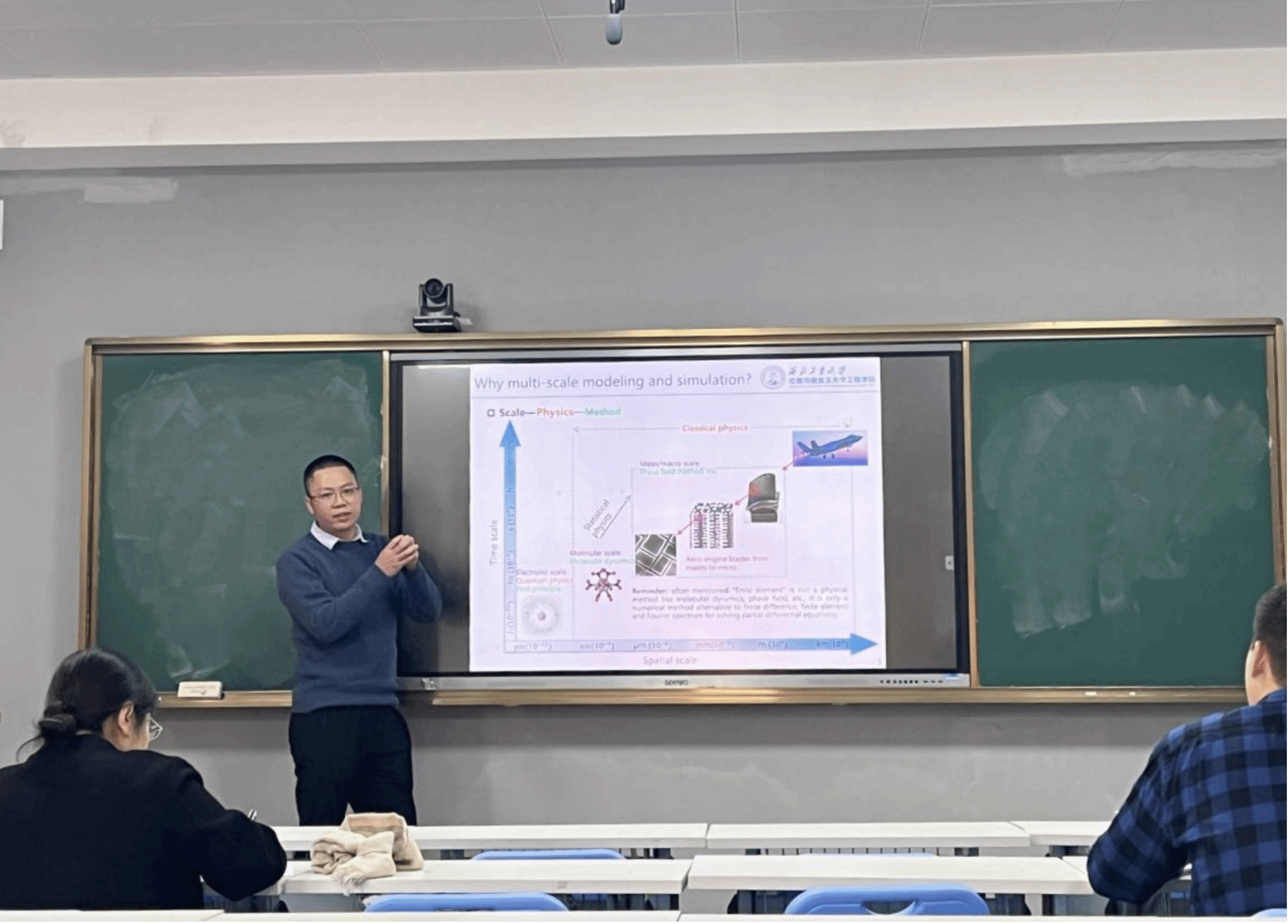On 6th December 2024, to enhance the English teaching proficiency of faculty members, foster the exchange of teaching experiences, and further improve the internationalisation of academic standards at QMES, an English-Taught Trial Lecture and Discussion Seminar was held at XA309, West Teaching Building, Youyi Campus.
The trial lecture and discussion seminar invited Professor Shixuetao from the School of Chemistry and Chemical Engineering, Professor Wang Jun from the School of Materials Science and Engineering, and Zhe Li from QMUL as expert judges, alongside three student judges. Teachers from the School of Materials Science and Engineering, including Wang Long, He Feng, Wan Jie, and Wu Ronghai, delivered mock lessons on the following modules: Failure of Polymers , Metals I: Deformation and Strengthening, Fatigue and Creep Failure, and Multi-Scale Modelling and Simulation of Materials. The expert panel engaged in in-depth discussions with the instructors on delivering English-taught modules.

Firstly, Wang Long conducted a mock lecture on the module Failure of Polymers, focusing on the fracture hardness testing of polymer materials. He provided a detailed explanation of the standards for polymer fracture, fracture hardness, testing criteria, and testing procedures, helping students gain a deeper understanding of the testing process and its significance.

In the Metals I: Deformation and Strengthening, He Feng, engaged students through a series of questions and interactive discussions, sparking their interest in the subject while deepening their understanding of metal strengthening mechanisms. He provided a thorough explanation of dislocation mechanisms in metals, the roles of grain structure and grain boundaries, as well as methods of strain hardening and cold working, supported by the derivation of relevant formulas. Throughout the module, He Feng placed particular emphasis on key concepts, aiding students in reinforcing their understanding and memory.

The Fatigue and Creep Failure module was taught by Wan Jie, who systematically introduced the definition of creep, its conditions of occurrence, the criteria for evaluating creep phenomena, and its specific manifestations in different scenarios. Using a combination of PowerPoint presentations and board work, his teaching approach effectively integrated theory with practical case studies, further enhancing students’ understanding of the module’s core content.

In the course on Multi-scale Modelling and Simulation of Materials, Wu Ronghai began by introducing the foundational concepts, gradually progressing to the definition of multi-scale modelling and its specific applications at molecular, microscopic, and macroscopic scales. Through the discussion of topics such as grain growth, directional solidification, and precipitation and dissolution, he examined the processing principles from a microstructural to a macroscopic perspective, incorporating phase diagram analysis. He also provided a detailed derivation of the relevant computational formulas, thereby enabling students to gain a more comprehensive understanding of the course content.
Finally, the judges provided feedback on the teaching methods, board design, PowerPoint content, logical structure, classroom interaction, and overall module organisation. The student evaluators shared their experiences of the lesson and offered feedback and suggestions to the participating teachers.
The trial lecture and exchange seminar served as a crucial step in the “entry-level” assessment for instructors joining the QMES teaching programme. QMES places great emphasis on the selection and development of teachers for full English-language instruction, ensuring that they meet the high standards of international education through a rigorous admission review and trial lecture evaluation process. This entry-level seminar not only provided an important platform for teacher learning and exchange but also represents a key practice and exploration in QMES’s efforts to enhance students’ international competitiveness within its talent development system. QMES will leverage this seminar as an opportunity to make full use of the resources offered by the International Centre for Teaching and Learning (ICTL), continually improving the academic capabilities and English-language teaching skills of its instructors. The aim is to build a high-level, professional international faculty team, laying a solid foundation for the ongoing optimisation of international education quality. This initiative will contribute to cultivating talent with a global perspective and international competitiveness, supporting NPU in achieving breakthroughs in the field of international education.
Text: Zhang Jiayu, Xu Jingyang, and Li Yuzhiheng;
Photo: Zhang Jiayu;
Edit: Han Huichun;
Translate: Shen Xinyi;
Review: Wang Yongxin

